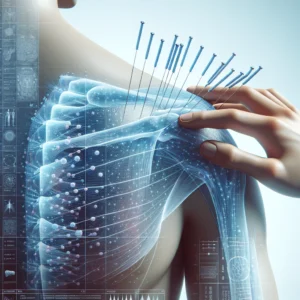Unlock the Power of Acupuncture Techniques to Alleviate Shoulder Stiffness and Enhance Mobility
Explore the Roots of Shoulder Stiffness: Identifying Causes, Symptoms, and Their Effects on Daily Activities
Shoulder stiffness transcends being a mere nuisance; it is a serious condition that can disrupt your everyday activities, significantly impacting your quality of life and overall health. This prevalent issue can stem from a variety of causes, including poor posture, repetitive movements, muscle imbalances, and prior injuries. Initially, you may notice a slight sensation of tightness, but if left unaddressed, it can evolve into severe pain and a noticeable limitation in your range of motion, making simple tasks increasingly challenging.
Extended periods of poor posture—particularly in sedentary jobs or during frequent overhead activities—can place excessive strain on the shoulder’s muscles and connective tissues, leading to chronic stiffness. Athletes and individuals engaged in labor-intensive jobs are particularly vulnerable to overuse injuries that can trigger inflammation and tightness in the shoulder region. Additionally, traumatic events such as falls or accidents may result in acute shoulder stiffness, often accompanied by swelling and bruising, which can intensify discomfort.
The symptoms of shoulder stiffness can manifest in various ways, including radiating pain down the arm, difficulty in arm elevation, or a persistent feeling of tightness surrounding the shoulder joint. You may also observe a significant reduction in your overall range of motion, making everyday activities like reaching, throwing, or even sleeping uncomfortable and strained. Early recognition of these symptoms is vital for pursuing effective treatments, such as acupuncture for shoulder stiffness, which can provide substantial relief and restore mobility.
 Harnessing Acupuncture for Effective Relief from Shoulder Pain and Discomfort
Harnessing Acupuncture for Effective Relief from Shoulder Pain and Discomfort
To fully appreciate the benefits of acupuncture in relieving shoulder stiffness, it is essential to explore the foundational principles of this time-honored healing practice. Rooted in the philosophy of Traditional Chinese Medicine (TCM), acupuncture aims to restore balance to vital energy, known as “Qi,” that circulates through specific pathways in the body, referred to as meridians. When blockages or imbalances disrupt this energy flow, they can lead to pain and stiffness, creating a cycle of discomfort that can be difficult to break.
During an acupuncture session, fine needles are skillfully inserted at targeted locations along these meridians. This practice stimulates the nervous system, encouraging the release of endorphins and various neurotransmitters that work synergistically to alleviate pain and reduce inflammation. As your body engages in its natural healing processes, blood circulation improves, allowing essential nutrients and oxygen to reach the affected shoulder areas, facilitating recovery.
A wealth of research suggests that <a href="https://limitsofstrategy.com/acupuncture-for-healing-boost-recovery-after-surgery/">acupuncture</a> can significantly alleviate pain levels and improve mobility for individuals suffering from shoulder stiffness. By addressing the underlying causes of discomfort, acupuncture not only provides immediate relief but also fosters long-term recovery. This comprehensive approach effectively addresses both symptoms and root issues, making it an essential therapeutic option for those confronting challenges related to shoulder stiffness.
Identifying Key Acupuncture Points to Target for Maximum Relief from Shoulder Stiffness
Familiarizing yourself with specific acupuncture points can greatly enhance your treatment experience and overall outcomes when seeking relief from shoulder stiffness. Here are some of the most effective acupuncture points commonly targeted to alleviate shoulder stiffness:
1. LI 15 (Jianyu): Situated at the shoulder joint, this point is crucial for reducing pain and stiffness, effectively easing tension and enhancing mobility.
2. SI 9 (Jianzhen): Located just above the shoulder, this point is particularly effective for relieving pain and tightness, especially those resulting from overexertion or strain.
3. GB 21 (Jianjing): Found at the peak of the shoulder, this point is frequently used to relieve muscle tension and promote relaxation, aiding in recovery.
4. TH 5 (Waiguan): Positioned on the forearm, this point is renowned for alleviating shoulder pain and enhancing overall shoulder functionality.
By stimulating these vital acupuncture points, practitioners can effectively address areas of tension and discomfort, providing significant relief from shoulder stiffness. An experienced acupuncturist will conduct a comprehensive evaluation of your condition and tailor the treatment to specifically target your symptoms, ensuring the best possible outcomes.
Personalized Treatment Plans from Acupuncturists for Holistic Healing
One of the most compelling benefits of acupuncture is the individualized treatment plans crafted by skilled practitioners. Recognizing that each person’s experience with shoulder stiffness is distinct, acupuncturists take a holistic approach to treatment. During your initial consultation, the acupuncturist will perform a thorough assessment, which may include a physical examination and an in-depth discussion regarding your medical history, lifestyle habits, and symptoms.
Based on this comprehensive evaluation, the acupuncturist will develop a customized treatment plan that not only addresses your symptoms but also targets any underlying issues. This tailored strategy may incorporate various acupuncture techniques, such as dry needling or electro-acupuncture, alongside recommendations for complementary therapies like cupping or herbal medicine.
This personalized approach aims not only to relieve your current symptoms but also to promote lasting shoulder health and prevent future stiffness. Regular follow-up sessions enable the acupuncturist to modify the treatment plan as needed, ensuring you receive the most effective care possible. This level of individualized attention and customization positions acupuncture as a premier option for individuals seeking relief from shoulder stiffness.
 Explore the Multifaceted Benefits of Acupuncture for Shoulder Stiffness Relief
Explore the Multifaceted Benefits of Acupuncture for Shoulder Stiffness Relief
Achieve Significant Pain Relief and Enhanced Mobility Through Acupuncture
Among the most remarkable benefits of acupuncture for shoulder stiffness lies in its exceptional ability to alleviate pain and promote mobility. Many patients report significant pain relief following just a few sessions. This effectiveness can be attributed to acupuncture’s unique capacity to activate the body’s inherent pain relief mechanisms. By facilitating the release of endorphins and enhancing blood circulation to the affected areas, acupuncture diminishes discomfort and encourages natural healing.
Moreover, the enhancement of mobility is another critical benefit. Stiffness in the shoulder frequently limits your range of motion, complicating daily tasks. Acupuncture helps to relax tight muscles and restore normal functionality. As tension alleviates, many patients discover they can lift their arms, reach across their bodies, and engage in physical activities with greater ease.
Additionally, the holistic nature of acupuncture addresses not only the physical symptoms but also the emotional stress often intertwined with chronic pain. This comprehensive approach can significantly elevate overall well-being, making acupuncture an invaluable resource for individuals grappling with shoulder stiffness.
Obtain Lasting Relief and Preventive Strategies Through Acupuncture
Beyond providing immediate pain relief, acupuncture offers enduring benefits that can help prevent the recurrence of shoulder stiffness. Regular acupuncture treatments can promote continuous healing and maintain optimal shoulder function. By addressing musculoskeletal imbalances and encouraging improved posture, acupuncture enhances bodily efficiency, thereby reducing the likelihood of future stiffness and discomfort.
Furthermore, acupuncture actively bolsters the body’s natural healing processes. As patients continue their treatments, they often notice an overall improvement in their physical condition, including enhanced strength and flexibility in the shoulder region. This proactive approach empowers individuals to take charge of their health, minimizing reliance on medications and invasive procedures.
Preventive care is particularly crucial for those with a history of shoulder issues or those engaged in activities predisposed to injury. By incorporating acupuncture into a regular wellness regimen, patients can effectively manage their shoulder health and promote long-term vitality.
Integrating Acupuncture with Complementary Therapies for Optimal Healing Results
While acupuncture stands out as a potent standalone treatment, it integrates exceptionally well with other therapies to enhance the management of shoulder stiffness. By combining acupuncture with physical therapy, chiropractic care, or massage therapy, patients can achieve greater overall effectiveness and expedite their recovery. Each of these modalities addresses different facets of shoulder health, culminating in a comprehensive treatment strategy that targets pain relief, mobility, and strength.
For instance, while physical therapy focuses on rehabilitation exercises to strengthen shoulder muscles and improve range of motion, pairing it with acupuncture, which alleviates pain and inflammation, often results in quicker recovery times and improved outcomes. Similarly, chiropractic care can help align the spine and shoulder joints, while acupuncture addresses soft tissue concerns, creating a holistic treatment plan.
Additionally, lifestyle modifications such as ergonomic adjustments at work, targeted stretching, and strength-building exercises can further amplify the advantages of acupuncture. By adopting a multifaceted approach to shoulder health, patients can maximize the benefits of each treatment modality, leading to a more resilient and effective recovery journey.
Real-Life Patient Testimonials Highlighting the Effectiveness of Acupuncture
The transformative potential of acupuncture for shoulder stiffness is best illustrated through compelling patient testimonials. Numerous individuals have shared their success stories, emphasizing how acupuncture has dramatically enhanced their quality of life.
For instance, Sarah, a graphic designer, battled persistent shoulder stiffness due to long hours spent at her computer. After undergoing several acupuncture sessions, she noticed a remarkable decrease in pain and an improved ability to work comfortably. She shared, “I never thought I could lift my arms without discomfort again. Acupuncture truly changed my life.”
Another inspiring account comes from Tom, an avid golfer who was sidelined by shoulder pain. After integrating acupuncture into his rehabilitation program, he regained his range of motion and observed improvements in his swing. “Thanks to acupuncture, I’m back on the course and playing better than ever. It’s been a game-changer,” he remarked.
These stories underscore the significant impact of acupuncture on individuals enduring shoulder stiffness. By sharing their experiences, patients not only motivate others to seek treatment but also highlight the effectiveness of acupuncture as a valid and valuable option for addressing shoulder-related challenges.
 Essential Steps to Prepare for Your Acupuncture Session: A Comprehensive Guide
Essential Steps to Prepare for Your Acupuncture Session: A Comprehensive Guide
Your First Acupuncture Appointment: Preparing for a Successful Experience
Preparing for your initial acupuncture session can help alleviate any apprehensions and ensure a smooth experience. During your first visit, the acupuncturist will conduct a comprehensive evaluation that includes a discussion about your medical history and current symptoms related to shoulder stiffness. This initial conversation is vital for tailoring the treatment to meet your specific needs.
After the assessment, you will be led to a treatment room where you can lie comfortably. The acupuncturist will identify specific acupuncture points customized for your condition and gently insert fine needles into the skin at these designated locations. Many patients report minimal discomfort during this process, often describing it as a slight prick or tingling sensation.
The session generally lasts between 30 to 60 minutes, during which you are encouraged to relax and practice deep breathing. It is common to experience a sense of calm and tranquility as the treatment progresses. Following the session, the acupuncturist may provide additional recommendations, such as stretching exercises or lifestyle modifications, to maximize the benefits of your treatment.
Maximizing the Effectiveness of Acupuncture: Essential Tips for Success
To fully leverage the benefits of your acupuncture for shoulder stiffness treatment, consider implementing these helpful strategies. First, arrive at your appointment well-hydrated and avoid heavy meals shortly before your session. Staying hydrated can enhance your body’s response to treatment, while an empty stomach may heighten your sensitivity to the needles.
Post-session care is equally important. After your acupuncture treatment, it is advisable to take some time to relax and refrain from engaging in strenuous activities, allowing your body to absorb the benefits of the session. Gentle stretching and light movement can be beneficial in maintaining the improved range of motion achieved during treatment.
Moreover, maintain open communication with your acupuncturist. Discuss any changes you observe, whether positive or negative, so they can adjust the treatment plan as necessary. Consistency is key; regular sessions can significantly enhance the effectiveness of acupuncture in managing shoulder stiffness, so establish a schedule that fits your needs.
Ensuring Safety and Understanding Potential Side Effects of Acupuncture
Safety is paramount when considering acupuncture for shoulder stiffness. Generally regarded as safe when performed by a qualified practitioner, it is essential to be aware of potential side effects, which may include mild bruising, tenderness at the needle sites, or temporary fatigue. Typically, these side effects are minor and resolve quickly.
Before your session, it is crucial to inform your acupuncturist of any medical conditions, allergies, or medications you are currently taking. This information allows them to tailor the treatment safely and effectively to your needs.
While rare, more severe side effects—such as infection or punctured organs—could potentially occur; however, these incidents are exceedingly uncommon when acupuncture is performed by trained professionals. By selecting a licensed acupuncturist and adhering to their recommendations, you can feel confident about the safety and effectiveness of your treatment.
Selecting the Right Acupuncturist for Effective Shoulder Stiffness Treatment
Choosing the right acupuncturist is essential for effectively addressing shoulder stiffness. Begin by seeking a licensed practitioner with a robust background in treating musculoskeletal conditions, particularly those associated with shoulder issues. Verify their credentials, including education and certification, to ensure they have the necessary training and experience.
Reading reviews and testimonials from past patients can also provide valuable insights into the acupuncturist’s approach and effectiveness. Consider scheduling a consultation to discuss your specific concerns and treatment goals. This initial meeting will allow you to evaluate their communication style and confirm your comfort with their methods.
Trust your instincts when selecting an acupuncturist. A competent practitioner will actively listen, address your questions, and develop a personalized treatment plan tailored to your needs. Choosing the right professional lays the foundation for a successful journey toward relief from shoulder stiffness.
 Targeted Treatment Approaches for Specific Shoulder Conditions with Acupuncture
Targeted Treatment Approaches for Specific Shoulder Conditions with Acupuncture
Effectively Managing Rotator Cuff Injuries with Acupuncture Therapy
Rotator cuff injuries frequently contribute to shoulder stiffness, often arising from repetitive strain or acute trauma. These injuries can lead to debilitating pain and reduced mobility, significantly affecting daily activities and overall quality of life. Acupuncture presents a promising solution for effectively managing rotator cuff injuries, providing relief from pain while enhancing the healing process.
By focusing on specific acupuncture points related to the shoulder and surrounding muscles, practitioners can help reduce inflammation and improve blood flow to the injured tissues. This method not only promotes healing but also restores functionality. Research indicates that patients with rotator cuff injuries frequently experience significant reductions in pain and notable improvements in their range of motion following acupuncture treatments.
Furthermore, acupuncture can alleviate muscle tension often associated with rotator cuff injuries. By relaxing the surrounding musculature, patients can experience a comprehensive sense of relief, making rehabilitation exercises more effective. This holistic approach addresses the injury while promoting overall shoulder health, establishing acupuncture as a valuable component of recovery for individuals with rotator cuff injuries.
Utilizing Acupuncture for Effective Management of Frozen Shoulder
Frozen shoulder, clinically known as adhesive capsulitis, is characterized by extreme stiffness and pain in the shoulder joint, often leading to restricted movement. Acupuncture has gained recognition as an effective treatment strategy for managing this challenging condition. By targeting specific acupuncture points, practitioners can alleviate pain, reduce inflammation, and gradually restore mobility.
Research shows that acupuncture can significantly enhance shoulder function in individuals suffering from frozen shoulder. This therapy stimulates the body’s natural healing mechanisms, boosts blood circulation, and facilitates the release of tight muscles. This comprehensive approach not only alleviates pain but also aids in gradually regaining motion within the shoulder joint.
Patients with frozen shoulder frequently report substantial improvements in symptoms after undergoing a series of acupuncture sessions. The treatment helps break the cycle of stiffness and pain, enabling individuals to engage more fully in their daily lives. Acupuncture's ability to address both the physical and emotional dimensions of frozen shoulder positions it as a holistic and effective treatment option.
Effectively Addressing Arthritis-Related Shoulder Stiffness with Targeted Acupuncture Treatments
Arthritis is a primary contributor to shoulder stiffness, often leading to chronic pain and reduced mobility. Acupuncture can play a crucial role in managing arthritis-related symptoms, offering a natural and effective alternative to conventional pain relief methods. By addressing the underlying causes of inflammation and discomfort, acupuncture enhances joint function and improves the overall quality of life for those affected by arthritis.
Targeted acupuncture treatments can alleviate pain by enhancing blood flow and decreasing inflammation within the shoulder joint. This approach not only provides immediate relief but also contributes to long-term joint health. Regular acupuncture sessions can help manage the persistent pain associated with arthritis, allowing patients to engage more fully in their daily activities without the constraints of stiffness.
Furthermore, acupuncture can complement other treatments for arthritis, such as physical therapy and medication. By integrating acupuncture into a comprehensive treatment plan, patients can achieve enhanced outcomes and improve their well-being. This integrative approach to managing arthritis-related shoulder stiffness underscores the effectiveness of acupuncture as an essential tool in pain management.
 Enhancing Shoulder Rehabilitation After Surgery with Acupuncture
Enhancing Shoulder Rehabilitation After Surgery with Acupuncture
Acupuncture can serve as a crucial element of rehabilitation for individuals recovering from shoulder surgery. Post-surgical shoulder stiffness is a common concern, often resulting from immobilization and trauma associated with surgical procedures. Acupuncture can expedite recovery, alleviate pain, and improve mobility following surgery.
By targeting specific acupuncture points, practitioners can facilitate healing and reduce inflammation at the surgical site. This enhances blood circulation to the tissues, aids in repair, and minimizes scar tissue formation. Many patients report a significant decrease in pain and discomfort after acupuncture sessions, enabling them to participate more effectively in physical therapy and rehabilitation exercises.
Additionally, acupuncture can help address the emotional challenges of recovery, such as anxiety and frustration, which often accompany the healing process. By promoting relaxation and fostering a sense of well-being, acupuncture supports a more positive recovery experience. Incorporating acupuncture into post-surgical rehabilitation can be transformative for individuals seeking to regain strength and mobility in their shoulders.
Frequently Asked Questions About Acupuncture for Shoulder Stiffness
How Many Acupuncture Sessions Are Required for Effective Relief?
The number of acupuncture sessions needed to effectively alleviate shoulder stiffness can vary significantly among individuals. Many patients notice improvements after just a few sessions, while others may require ongoing treatment to achieve optimal results.
Can Acupuncture Effectively Manage Chronic Shoulder Pain?
Yes, acupuncture can be highly effective in relieving chronic shoulder pain. By targeting the root causes of discomfort and promoting healing, acupuncture often provides significant relief for individuals dealing with long-term issues.
Is Acupuncture Covered by Insurance for Shoulder Stiffness Treatments?
Many insurance plans offer coverage for acupuncture treatments, especially when prescribed for specific conditions like shoulder stiffness. It is advisable to consult with your insurance provider for specific information regarding coverage options and reimbursement processes.
What Alternatives Exist to Acupuncture for Shoulder Stiffness?
Alternatives to acupuncture for managing shoulder stiffness include physical therapy, chiropractic care, massage therapy, and medications. Each option offers unique benefits; however, acupuncture is distinguished by its holistic approach to healing.
What Should I Wear for an Acupuncture Session?
It is best to wear loose-fitting, comfortable clothing that allows easy access to the shoulder area. This ensures that the acupuncturist can effectively place needles without causing discomfort.
Are There Any Possible Side Effects of Acupuncture?
While acupuncture is generally considered safe, some individuals may experience minor side effects such as soreness, bruising, or fatigue. These effects are typically temporary and resolve quickly.
Can I Resume My Normal Activities After an Acupuncture Session?
Most patients can return to their daily activities following an acupuncture session. However, it is advisable to avoid strenuous exercise immediately after treatment to allow your body to recover effectively.
How Long Does a Typical Acupuncture Session Last?
An acupuncture session usually lasts between 30 to 60 minutes, although the exact duration may vary depending on individual needs and the complexity of the condition being treated.
Is Acupuncture Suitable for Everyone?
While acupuncture is safe for many individuals, those with specific medical conditions, such as bleeding disorders or infections, should consult their healthcare provider before beginning treatment.
Can Acupuncture Help with Shoulder Stiffness Related to Stress?
Absolutely! Acupuncture can effectively address stress-related shoulder stiffness by promoting relaxation and reducing muscle tension, making it a valuable resource for managing symptoms induced by stress.
Presented By: Shoulder Stiffness Acupuncture
The Article: Acupuncture for Shoulder Stiffness: Your Path to Relief appeared first on https://mcrtherapies.co.uk
The Article Acupuncture for Shoulder Stiffness: Find Relief Today appeared first on https://mcrtherapies.com
The Article Shoulder Stiffness Relief Through Acupuncture Today Was Found On https://limitsofstrategy.com